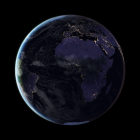Why Write?

How have we come to live with the arrow of death in our collective heart, asks Elizabeth Dias in a recent New York Times essay. In the aftermath of the shooting of 19 children and two teachers in Uvalde, as well as the nearly 20 mass shootings that have occurred since then, the question is painfully relevant.
Yet, right now, we don’t need answers. We already know that Senators and Representatives, mostly Republican, insist—over the will of most Americans—on frictionless access to guns. We also know that gun manufacturers, gun lobbyists, and others who benefit from the easy access to guns work relentlessly to associate guns with a violent brand of freedom and protection.
There are other answers, too. But, right now, they don’t matter. Right now, all that matters is that we pull out the arrow.
To do so requires our collective action, which is hard. At its base, collective action asks us to recognize others as precious—precious in ways we don’t understand, precious in ways we can’t articulate—precious beyond words.
Is it ironic that communal power depends on individual respect, even reverence? Maybe. But, according to Rabbi Mychal B. Springer, it’s a reflection of a simple spiritual truth: Each person, every one of us, contains the whole world.
We may not be aware of it, but we already understand this truth. Our feelings of wrenching despair, of agonized abandonment after such brutality testify to our recognition. We sense that we’ve squandered preciousness. We grasp, however lightly, that we’ve lost the whole world.
We sense, too, that we cannot wrest it back. But if we pull out the arrow, we can at least start to heal.
So, vote for council members, local officials, state representatives, and national leaders who support real responses to out-of-control gun violence, including federal laws that regulate access to guns. Participate in local, statewide, and national conversations to advocate for gun regulation. Support initiatives like Wear Orange. Join groups like Moms Demand Action and Sandy Hook Promise. Acknowledge, out loud, the terrible burden on survivors of gun violence, who must remind us—again and again and again—what has been lost.
In short, do everything you can, and even things you think you can’t, to pull out the arrow, so we can heal our heart, and begin the work of rebuilding the world.
